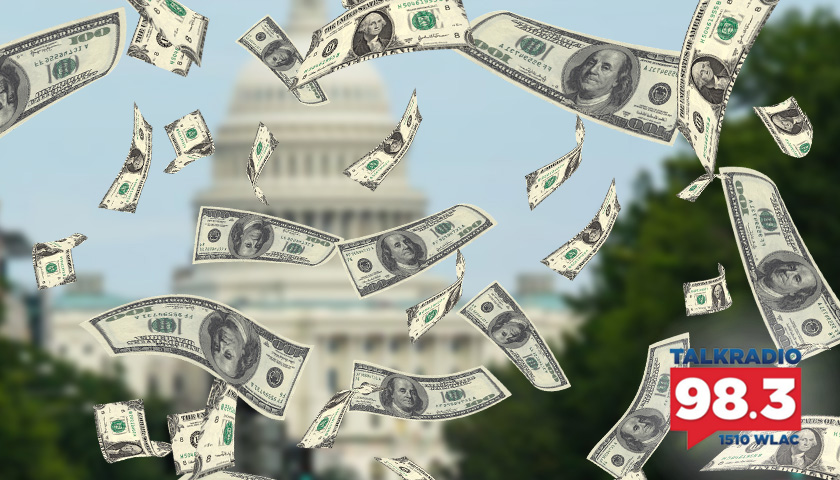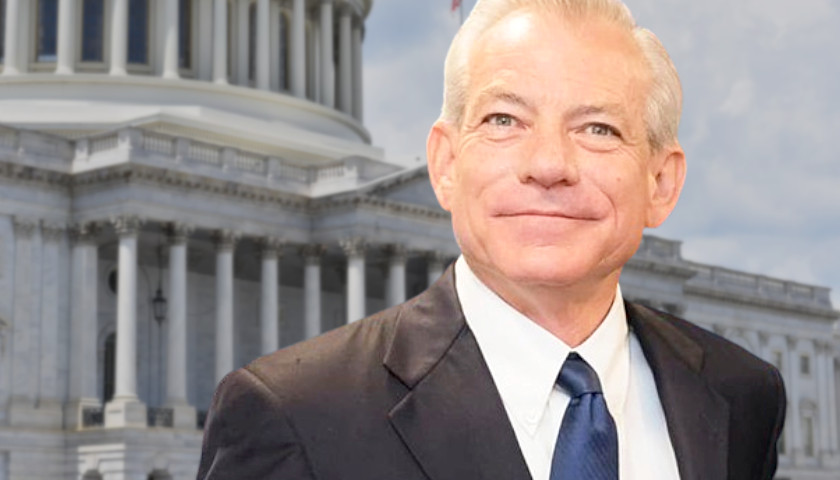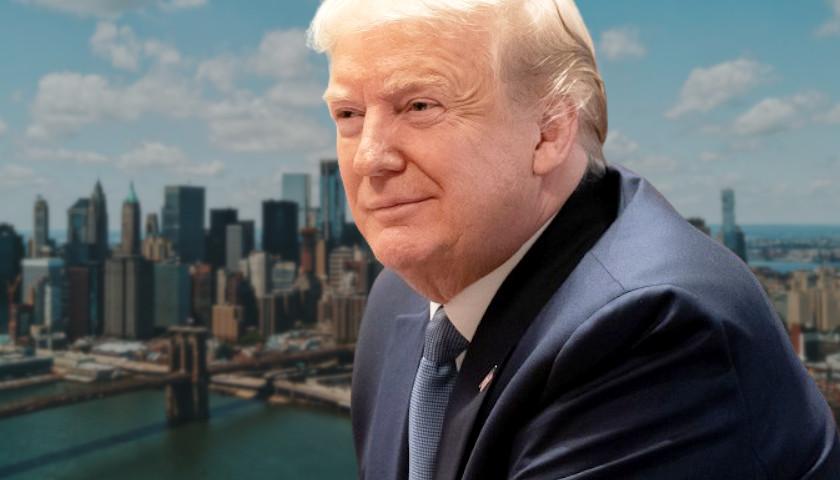Live from Music Row, Friday morning on The Tennessee Star Report with Michael Patrick Leahy – broadcast on Nashville’s Talk Radio 98.3 and 1510 WLAC weekdays from 5:00 a.m. to 8:00 a.m. – host Leahy welcomed the original all-star panelist Crom Carmichael to the studio for another edition of Crom’s Crommentary.
CROM CARMICHAEL:
Michael, I don’t remember who said it. You probably do. And I don’t even know if I’m going to get the quote exactly right, but it’s if we don’t understand history, we’re doomed to repeat it. And I don’t think I said that exactly right. But the essence is there.
And I was with some people yesterday and we were talking about Roosevelt and the Great Depression, and I made the statement that a lot of people claim that Roosevelt’s policies are what got us out of the Great Depression.
I think they called it the New Deal. And that’s what got us out of the Depression. And people would look at me like, what do you mean that the New Deal didn’t get us out of the Depression? Didn’t we get out of the Depression?
I said well, yes, but it wasn’t a New Deal. The New Deal actually kept us in the Depression for about 12 years. So I went back, and there’s a book that I would recommend people get and read. It’s called The Forgotten Man. And it kind of chronicles each chapter begins with three data points.
The data points give the date, the average unemployment rate for the year, and then it gives the Dow Jones Industrial average at that time for that month and that year. And then so, I want to just kind of give a little history lesson. The 20s for the economy were terrific, and the economy grew rapidly, and the stock market got up to 343.
The Dow Jones was at 343 and the top marginal tax rate was 25 percent. The economy did well. Then we had the trade war that dislocated economies all around the world, and it caused the stock market crash. Roosevelt then gets elected and puts in the New Deal, and starts raising marginal tax rates.
In October of 33, the Dow Jones had fallen from 343 to 93. It would actually fall a little lower than that. And then, by December of 36, the Dow had recovered to 182. So it had doubled in a period of a little over two years. And people thought that there was a recovery.
But then because of the constant increase in marginal tax rates and because of the massive amount of federal spending, the economy collapsed again. And so in 1937 and 1938, we had another depression. And the stock market fell from December 36 of 182, it fell all the way to 121.
It fell by a full third at the time when everybody now thinks the economy was fully recovered. And it wasn’t. By 1942, the top marginal tax rate was, wait for it, Michael, 94 percent. Ninety-four percent. And the economy had struggled until we went on a wartime footing.
And when the Second World War was over, every industrial base in the world was destroyed, except in the United States. After the Second World War, also after the depression, you had essentially destroyed all outstanding debt that was more than a very low amount.
And so you had an unleveraged U.S. economy, an industrial base that was in place to build capital goods, and you had the rest of the world that needed to buy capital goods because the war had destroyed all of theirs. And so, for the next 20 years, our economy grew very nicely even though we had these very high marginal tax rates.
Because if somebody wanted to buy capital goods, there wasn’t any place in the world to buy them except the United States. And so, by the mid-60s, our economy started faltering mightily. Kennedy lowered the top marginal tax rate to 70 percent.
Then inflation kicked in in the late 60s, and by the time Ronald Reagan became president, we still had a top marginal tax rate of 70 percent. You know what, how much money a family had to make to be at the top 70 percent rate? Fifty-nine thousand dollars.
And what happened during the Carter years and the last part of the Ford-Carter years, because you remember Ford’s solution to inflation was to wear a button W-I-N. Whip Inflation Now a button. And it didn’t work. The button did not work.
It was kind of like Hillary Clinton with her Reset button. It didn’t work either. So let’s just put buttons aside as solutions for big problems. But at any rate, so what you had was you go into the Carter years and people were being pushed into higher and higher tax brackets just because of inflation.
And that’s what brought Ronald Reagan into office. And I say that this is important because when you look at what’s going on in Congress at this very moment, what the Congress is trying to do, what the Democrats in the Congress are trying to do, and they can only do it with the help of 10 Republicans.
They have to have 10 Republicans in the Senate in order to accomplish what I’m about to say, and that is to pass an Omnibus Bill that will explode spending all the way through September of this coming year.
And it then puts in place a much higher normal spending amount that Republicans who want to try to right the ship will have literally an impossible time changing as long as a Democrat is sitting in the Oval Office and can veto a bill. I love the Christmas season.
Typically the lame-duck session of Congress they don’t do anything except clean up little things because Congress has the courtesy to leave the big policies to the people who’ve just been elected by the people, but not this Democrat Party. And it’s unfortunate, and I blame it on the Democrats because they’re the ones in power, and you have to hold the people who are in power accountable for the terrible decisions.
I just hope and pray that there are not 10 Republicans in the Senate who will let them pass an Omnibus Bill. And by the way, the stock market went down 7700 points yesterday, which is the stock market’s way of saying, please, please don’t do something giantly stupid next week.
Listen to today’s show highlights, including this interview:
– – –
Tune in weekdays from 5:00 – 8:00 a.m. to The Tennessee Star Report with Michael Patrick Leahy on Talk Radio 98.3 FM WLAC 1510. Listen online at iHeart Radio.
Photo “U.S. Capitol” by Ramaz Bluashvili.








